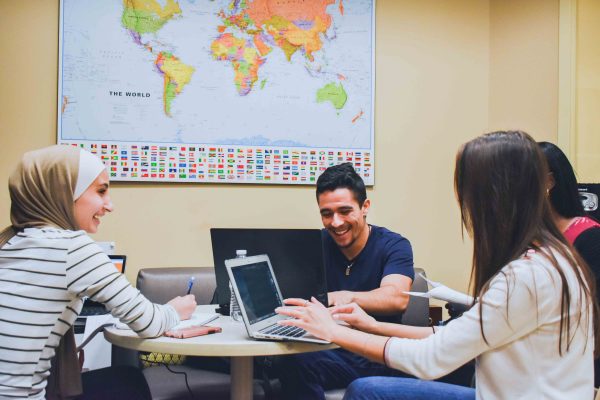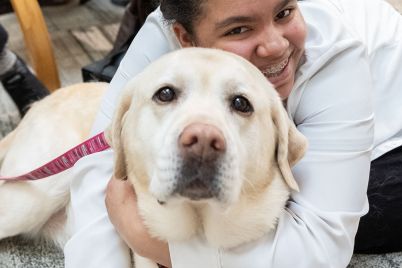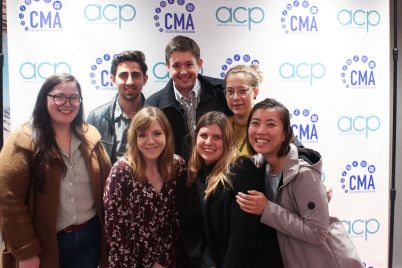
Ali Kurmasha leads a club discussion on how to better communicate with each other through our differences. Ali Kurmasha | Washtenaw Voice
By Claire Convis
Staff Writer
The Intercultural Communications Club began meeting at WCC this past January. The club is centered around the idea of a diverse conversation lab. A topic is established, and then people of different backgrounds, ages, cultures and beliefs can discuss and learn how to better communicate with each other.
“I took an intercultural communications class, and I love the idea of conversation labs; understanding one another and decreasing prejudice,” said club leader Ali Kurmasha.
Two of Kurmasha’s classmates, Samantha Lamb and Nathan Lizzio, shared his enthusiasm to start a communications club, and to help students build connections and establish a safe, healthy community.
Lizzio is a 28-year-old business management major who describes the group as a community of people that he can rely on. Lizzio said that the club is a place where he can learn about the lives of others in their own words.
“Most of the prejudice in today’s society is based on misunderstanding and not knowing one another,” Kurmasha said. “It’s based on being isolated in your own culture… and not exploring other people’s worldviews and their cultures, and that’s what causes discrimination.”
Kurmasha stressed the importance of learning more about other people’s circumstances, points of view and beliefs.
Prejudices can form just from looking at someone because you only see what is on the surface, Kurmasha said, but once you get to know a person for who they really are, that prejudice can decrease.
“I have seen a lot of people getting close to other people that they did not expect to be friends with,” Kurmasha said. “And now they’re best friends, because they understand one another and they know how much in common they have together.”
Kurmasha said that one of his goals is to help people realize that many kinds of different people can come together and relate to each other, as opposed to separating everyone into different groups. People of all ages, backgrounds, beliefs and lifestyles can come to the communications club, establish mutual understanding with others, and enjoy each other’s company.
“When I first came to WCC, I wasn’t excited, because I was afraid I wasn’t going to meet anyone,” said Lamb, a 19-year-old marketing major. “I was afraid that everyone would have a commuter mindset of ‘get in, get out,’ and there would be no interaction, and interaction was something that I was looking for in a college.”
“At a community college, sometimes people just come here, go to class and go home, so it’s nice to see some students staying late just to talk to each other,” Lizzio said.
Lamb said that being a member of the intercultural communications club has been “enriching,” and that group discussion topics can range from astrology, to where you were born, to whether Coke or Pepsi is better.
“We have fun debates,” said Lamb. “Not stressful, political debates.”
Bringing people together in a place where they can make friends and discuss their experiences is the group’s intention, Lizzio said.
Kurmasha said he was inspired by Paula Salazar, who was an international student and a recipient of the Jack Kent Cooke Foundation scholarship. Salazar’s journey as an international student had its challenges, but she managed through determination and involvement in community projects. Salazar’s impact on her community inspired Kurmasha to make a community impact as well.
“Every one of us can do something small, but it can have a great impact on the community,” Kurmasha said.
Kurmasha has Iraqi citizenship but was born in Jordan, and came to the United States in 2014, escaping discrimination and conflict in his home country. Because of media and television, Kurmasha said he had his own preconceived notions about American society before he arrived in the States.
“It was only when I started communicating with people one-on-one and understanding this culture… that I actually established a true understanding for people around me here, and that’s when I became their friend.”
Kurmasha was a member of a Foreign Exchange Student Club in his high school, and he said that he has been very welcomed by the community in the Ann Arbor area.
“It’s amazing how open this community is,” Kurmasha said, praising the diversity in food, art, culture, music, festivals and events that Ann Arbor is home to.
Kurmasha described the city as an easy place to make friends without fear of judgement.
“I am so glad I came to Ann Arbor; everyone has been so welcoming,” he added.
Kurmasha said that after experiencing religious persecution, coming to such an open-minded community has really helped him come out of his shell and feel free to express his true identity.
“I am very proud of this community, and that’s my mission in the future, serving this community,” Kurmasha said.
The group meets on Wednesdays from 1:30-3:30 in GM 207, and anyone is welcome to join.


